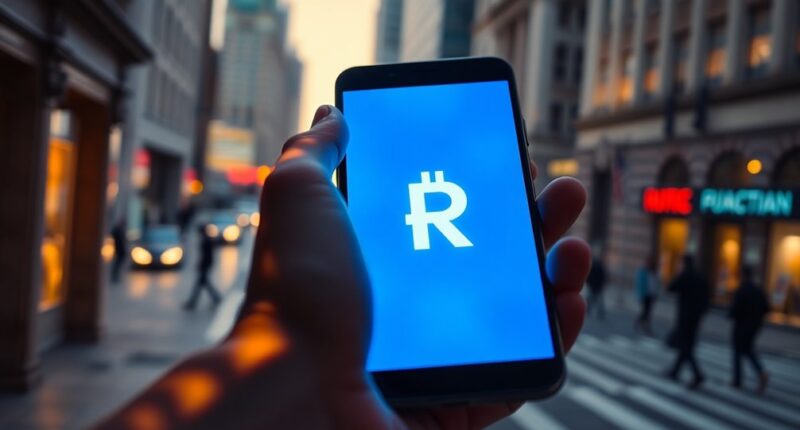You've probably heard about the Russian Digital Ruble and its potential role in circumventing international sanctions. It's designed to enable trade without relying on euros or US dollars, making it appealing for nations looking to bypass financial restrictions. However, as this digital currency evolves, questions remain about its true effectiveness and the hurdles it might face in the global market. What might those challenges reveal about Russia's economic strategies moving forward?

As the global financial landscape shifts, Russia's introduction of the Digital Ruble aims to bolster its economic resilience against US sanctions. This digital currency serves a vital purpose: enhancing financial transactions while reducing dependence on traditional reserve currencies like the US Dollar and Euro. With US sanctions severely impacting Russia, freezing transactions and devaluing the Ruble, the stakes are high for the country to find alternative solutions.
The Digital Ruble could play a pivotal role in facilitating trade, particularly with nations in Asia and Africa. By bypassing traditional currency routes, it opens doors for smoother transactions and new economic partnerships. Issued by the Bank of Russia, the Digital Ruble is meant to be an additional form of the national currency, but the operational details remain murky. Questions about platform management and transaction validation linger, raising concerns about its implementation.
On the sanctions evasion front, the Digital Ruble offers a promising avenue. It minimizes risks associated with sanctions by allowing settlements without relying on euros or US dollars. This could significantly alter the way Russia engages in cross-border payments, potentially sidestepping the existing correspondent bank account system that international sanctions target. Furthermore, the Digital Ruble's launch is expected to be completed by 2024, which may accelerate its adoption in international trade.
However, while the Digital Ruble shows promise for smaller transactions, it mightn't possess the necessary liquidity for large-scale sanctions evasion, posing a challenge for its broader acceptance.
As Russia explores this digital path, cryptocurrencies are also being integrated into its financial system to further bypass sanctions. Exchanges like Garantex and Exved play crucial roles in this ecosystem, aiding imports and exports despite facing sanctions themselves. Blockchain services from companies like B-Crypto offer additional support by facilitating cross-border settlements using virtual currencies.
Yet, the regulatory landscape complicates these efforts; on-chain sanctions evasion at scale remains unlikely due to liquidity constraints.
The international community has taken notice of these developments. The US Treasury has designated several Russian entities that facilitate sanctions evasion through virtual assets, underscoring the seriousness of the situation. Meanwhile, the G7 has reaffirmed its commitment to counteracting such evasion tactics, including those involving virtual currencies.
China's involvement in setting up regional clearing platforms with Russia hints at a broader strategy to circumvent sanctions, while banks in Kyrgyzstan, like Keremet Bank, have been implicated in schemes that further complicate the sanctions landscape.
As you consider the potential implications of the Digital Ruble, it becomes clear that while it may offer Russia an innovative tool for economic resilience, the challenges of implementation and regulatory scrutiny can't be overlooked. The interplay between the Digital Ruble, cryptocurrencies, and international responses to sanctions will shape not just Russia's economic future but also the global financial landscape.
The stakes are high, and the world will be watching closely as this digital currency unfolds.









